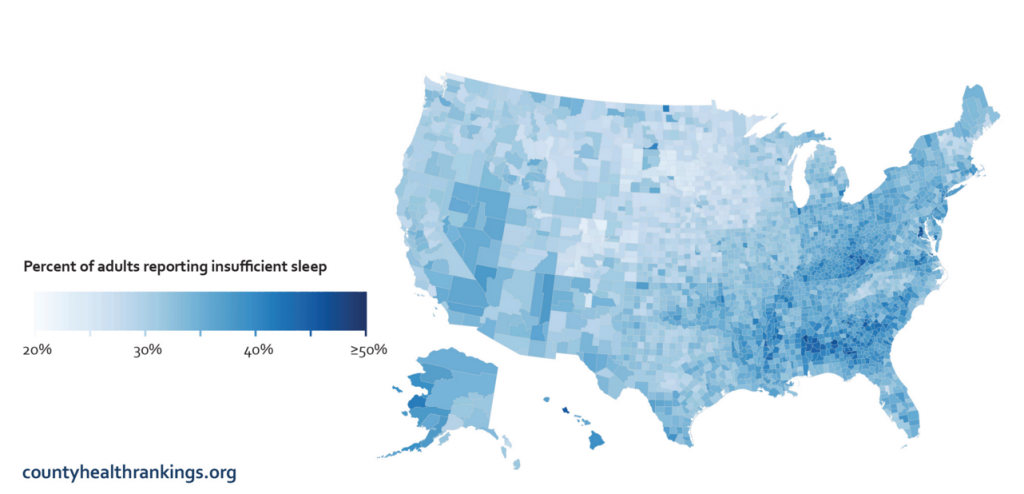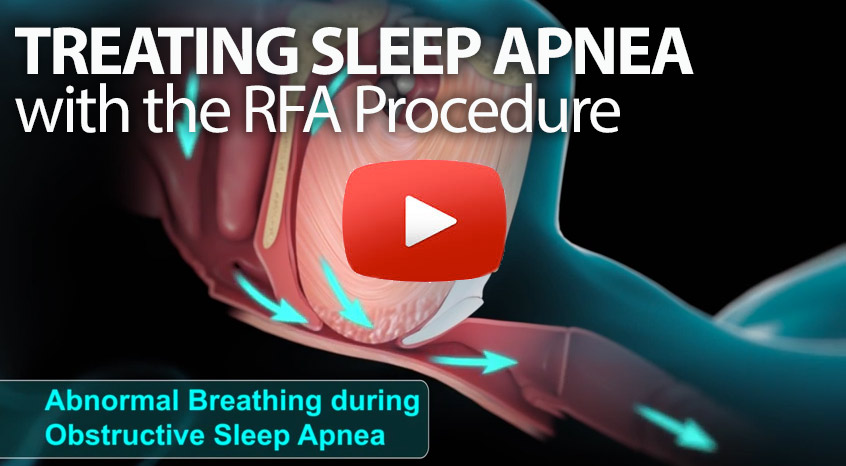A new 2016 report released by County Health Rankings, a collaboration between the Robert Wood Johnson Foundation (RWJF) and the University of Wisconsin Population Health Institute (UWPHI), compared counties within each state on more than 30 factors that impact health, including insufficient sleep. What they found might surprise you:
- Among counties in the US, on average, 33% of adults are not getting enough sleep.
- The rate of insufficient sleep in US counties ranges from 23 percent to 47 percent.
- Rates of insufficient sleep appear highest in Southeastern US and lowest in the Plains states.
- There are no significant differences among rates of insufficient sleep by urban/rural county type.

The measure of “insufficient sleep” was the percent of adults who reported getting fewer than 7 hours of sleep per night on average.
Not getting 7 hours of sleep can pose a number of serious health risks.
One of the main causes of insufficient sleep is sleep apnea. Studies show that individuals with a body mass index (BMI) greater than 27 are at increased risk of having apnea. Therefore, decreasing one’s BMI to < 27 would either lessen the risk of having apnea, or would decrease the degree of apnea.
In addition to weight loss, exercise, good sleep hygiene, positional sleeping, and even devices such as a CPAP machine can help.
If you’ve been suffering Obstructive Sleep Apnea (OSA), Radio Frequency Ablation (RFA) is a painless, non-surgical in-office procedure that has been proven effective in treating mild to moderate OSA. Benefits of this procedure include no cutting, tissue removal, minimal discomfort, and no downtime.
If you or someone you know is in need of a better night’s sleep, contact us for a no obligation consultation. We are the sleep specialists at Chevy Chase ENT located in the Virginia, Maryland, and Washington D.C. metro area dealing with sleep apnea and sleep-related problems. We can help diagnose your condition, recommend whether a sleep study would be beneficial, and offer you a variety of treatment options including CPAP, Radio Frequency Ablation (RFA) and more.
